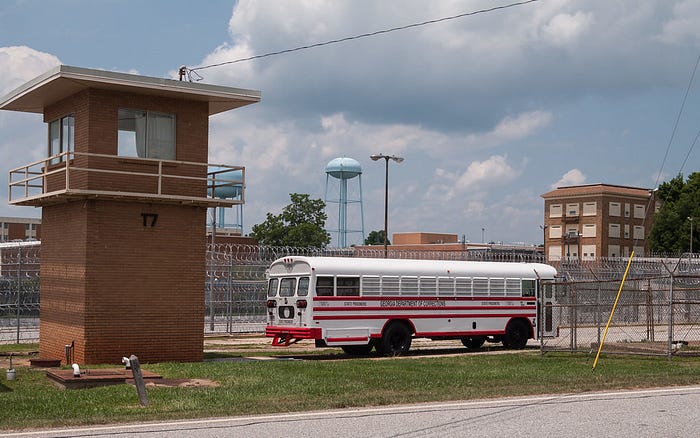Member-only story
Open Letter on Conditions at Arrendale State Prison

Every time I drive down highway 365 towards Atlanta, right before I hit Jaemor Farms and the Schoolbus Graveyard, I see a sign on the side of the road that reads “Arrendale State Prison” with an arrow pointing down another asphalt laden road. Whenever I pass that sign, I think about the women incarcerated at the facility and the individuals incarcerated at facilities across Georgia. I have never met any of them, and I have never seen any of them. They are, for all intents and purposes, invisible to me and the countless other people driving south to Atlanta or north to North Carolina.
While I do not know them personally, they exist. They appear in my mind every time I drive past the green sign on the side of the road. The women incarcerated at Arrendale are counted in the 2020 census as residing in Habersham County and Georgia’s Ninth Congressional District for the next decade, thus impacting voting districts. Ultimately, then, these women are the constituents of the representatives of the city of Alto, Habersham County, Georgia’s Ninth Congressional District, and Georgia itself. However, they cannot vote and when they speak about the atrocities and inhumane treatment that they receive within the confines of the prison, their representatives and the community turn a deaf ear.
I am one of your constituents as well, moving here a few years ago, and I am gravely disturbed by the inhumane treatment of the women incarcerated at Arrendale and at the treatment of incarcerated men and women across the state. Twice over the past few months the Southern Center for Human Rights (SCHR) has written to the overseers at the institution about the inhumane treatment of those incarcerated at the facility. The SCHR reports countless instances of inhumane treatment at the facility, clearly violating the Eighth Amendment of the Constitution which prohibits “cruel and unusual punishment” within prisons.
Women at Arrendale have experienced “cruel and unusual punishment, specifically women who give birth within the facility. After giving birth, women, as the SCHR put it, “do not receive timely or adequate medical care or basic necessities, and have been in solitary confinement just weeks after giving birth.” Some women remained in the clothes that they gave birth in, wearing the bloodied and stained clothes…
